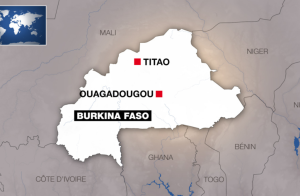Africa: The AfDB launches the creation of four green banks for climate financing

The African Development Bank (AfDB), through the African Green Bank Initiative, has launched the creation of four green banks in Africa. This is an innovative response to the persistent shortfall in climate financing noted at every COP conference.
By setting up green financing mechanisms within financial institutions in Benin, Côte d’Ivoire, Morocco and Egypt, the initiative aims to equip local banks with the technical skills they need to attract climate financing from both international and domestic investors.
In May, the AfDB announced the launch of the first green banks in Africa, thanks to a partnership with financial institutions in Côte d’Ivoire, the National Investment Bank (BNI), and in Benin, the Deposit and Consignment Fund of Benin” (CDC Bénin).
In December, it will join forces with financial institutions in Morocco and Egypt to launch green banks in North Africa.
«The fact that African governments and financial institutions are making green banks a priority shows that Africa is taking charge of its climate financing needs. By 2030, the estimated financing needed for African countries to meet their Nationally Determined Contributions (NDCs) under the Paris Agreement will be around $2.8 billion. We can’t wait any longer to solve the climate finance gap in Africa», said Audrey-Cynthia Yamadjako, coordinator of the African Green Bank Initiative.
Developed countries pledged $100 billion a year to help developing countries combat climate change at COP 15 in 2009, but this funding has been slow in coming.
Uncertainty remains as to whether this situation will change at COP 28, which is currently taking place in Dubai.
In response to this lack of funding, the African Green Bank Initiative plans to roll out a large number of green banks across the continent over the next few years.
Green banks or green investment facilities are blended financing instruments placed in existing financial institutions or created from scratch, which have the technical and financial capacity to attract climate finance from international and local investors.
The hybrid nature of these mechanisms transcends the traditional constraints inherent in investment.
As a result, the value of potential climate projects is enhanced, making them not only more attractive to lenders, but also significantly less risky for players in the climate finance sector.
Yann ETERNEL











